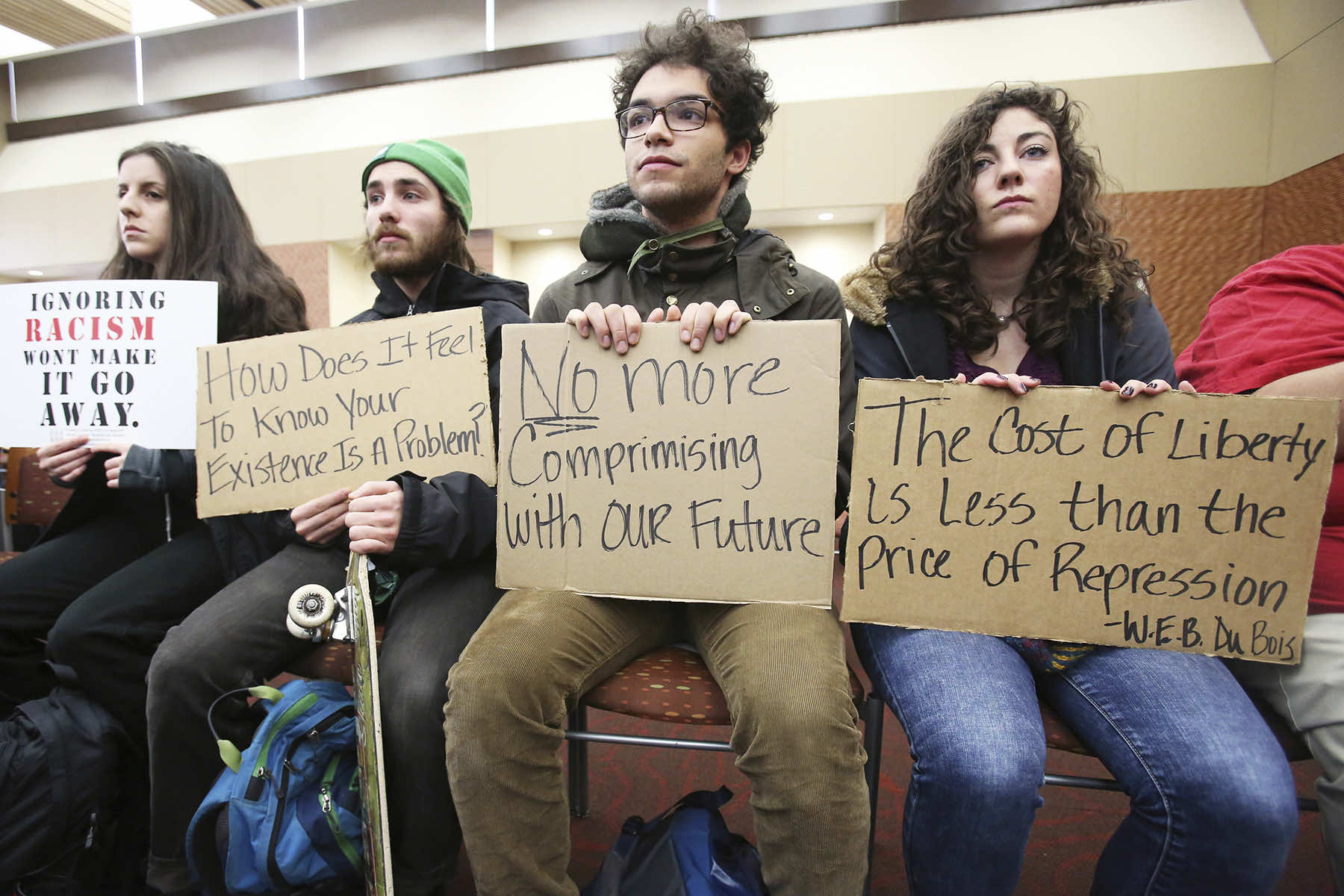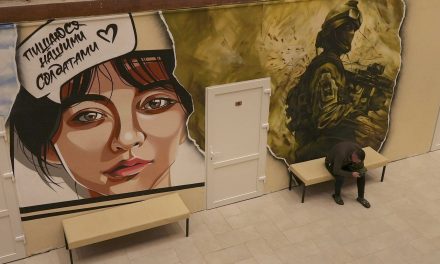
The fight over racial equity and free speech on Wisconsin college campuses is intensifying, mirroring a national battle as Republicans work to close campus diversity offices and demand students and faculty treat conservative speakers with respect.
Since the beginning of May, the state’s top Republican announced a push to defund the University of Wisconsin System’s diversity efforts — a move the Democratic governor lambasted as ridiculous.
A student from UW-Madison posted racial slurs online, triggering bitter protests but no announced discipline. And a state medical college canceled a diversity symposium featuring Republican U.S. Senatpr Ron Johnson out of concerns the discussion would be too disruptive, resulting in cries of bias from conservatives.
Amid that backdrop, Republican legislative leaders held a hearing on May 11 with only invited speakers to discuss “how the lack of free speech and intellectual diversity on college campuses affects the quality of higher education.” The speakers included John Sailer, policy director at the National Association of Scholars, a conservative group that advocates against diversity policies, and Tim Higgins, a former UW regent appointed by former Republican Governor Scott Walker.
“I think people are talking about viewpoint diversity as being as important or more important than other types of diversity,” said Republican Rep. David Murphy, chairman of the state Assembly’s colleges committee, who will preside over the hearing. “And I think (diversity efforts aren’t) showing any benefits.”
Paulette Granberry Russell, president of the National Association of Diversity Officers in Higher Education, said it was disheartening to see a hearing on free speech with only invited speakers. She said the GOP was trying to paint diversity offices as giving minorities an unfair advantage when they were only trying to help everyone understand a broad range of perspectives.
“Contrary to those opposed to these offices, our work includes protecting free speech,” she said.
A survey released in February by the UW System, which includes 13 four-year schools, found almost half of the students who responded at least somewhat agree that administrators should bar controversial speakers if some students find the message offensive.
The issues have bubbled to the forefront this month, starting with Assembly Speaker Robin Vos’ announcement last week that he wants to defund campus diversity offices. He called the offices a waste of taxpayer dollars and said they exacerbate the racial divide.
Governor Tony Evers has called Vos’ proposal “ridiculous,” but Vos’ plan tracks with a national GOP push to dismantle campus diversity offices.
Republican lawmakers in at least a dozen states have proposed more than 30 diversity, equity and inclusion efforts in higher education, according to an analysis using the bill-tracking software Plural. Some proposals would ban DEI offices or any funding for them. Others would forbid administrators from considering diversity as part of the hiring or admissions process.
Around the same time as Vos’ announcement, a White UW-Madison student posted a racist screed online in which she said she wants to see some Black people enslaved so she can abuse them. The post triggered two days of protests on Wisconsin’s flagship campus with students demanding the student be expelled. University officials condemned the posting but said they can’t take action against legal free speech.
Meanwhile, officials at the Medical College of Wisconsin decided to cancel a May 12 campus symposium focusing on “the uses and abuses” of government-sponsored diversity programming on college campuses and in medical, science and tech education.
The college’s president, John Raymond Sr., sent a message May 4 to students and staff saying he canceled the symposium because discussions about the event have become “unacceptably disruptive.” Raymond issued the message on the same day as one of the UW-Madison protests.
Johnson was slated to take part in the symposium along with Sailer, who posted a copy of a letter that faculty sent to Raymond on April 30 saying they opposed the “pseudo-academic and potentially harmful meeting.”
“Discourse that is politically motivated and not rooted in evidence adds nothing to the MCW learning community and makes our learners feel unsafe,” the letter said.
Sailer tweeted that the letter was a “textbook hecklers veto.” Johnson’s office said the symposium will now be held online but the senator said in a statement that he hopes to meet with medical college leaders to discuss why they felt they couldn’t host the event.














